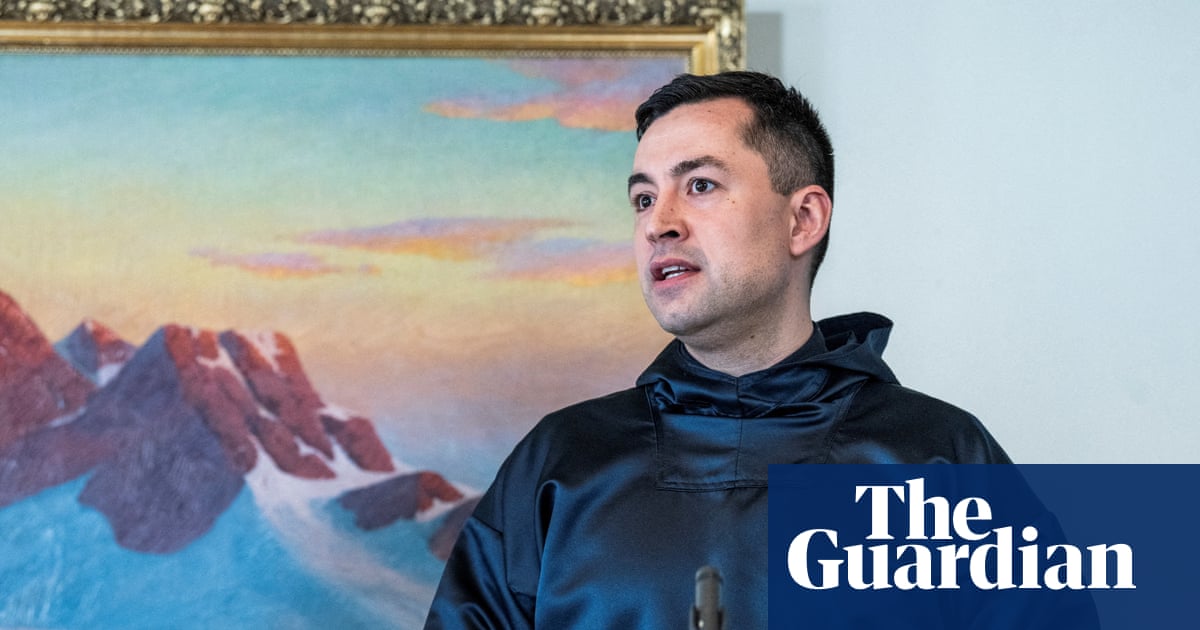With wailing woe in the small hours, many of you shared that wrenching despair when the US election result extinguished hope. Beyond reason, beyond reckoning, a nation that was once the beacon of the democratic world has knowingly elected a dangerous, racist demagogue, a “pussy-grabbing” criminal who tried to overthrow the government, a wild conspiracy spreader, a squalid, reckless beast of fathomless vanity and corruption. Caligula, Commodus, Nero, Domitian … This is the way a civilisation dies: by suicide not murder.
Donald Trump could now command both houses of Congress and the supreme court, with no steadying countervailing instinct for national self-preservation. “America first” means no allies, no “special relationships”, tariffs for all. Encourage Russia to “do whatever the hell they want”, Nato be damned. He will send in the military to force mass deportations of millions of migrants. He threatens the justice system with revenge, with protesters and opponents branded “the enemy within”. This democratically elected self-described “dictator” can do whatever he wants. And the tides will carry this poison across the Atlantic, invigorating Europe’s hard right from Nigel Farage to Viktor Orbán, Geert Wilders to Marine Le Pen, the Alternative für Deutschland to the Sweden Democrats.
On the morning of the result I was speaking to US students visiting the UK from Pennsylvania, Virginia and New Jersey. One had her head bowed, sighing. Another told me she had wept. They were mainly liberals, the sort who might choose a semester in Europe, and were distressed at how many fellow students had not voted. “My Republican uncle lives up the road, but we don’t speak, not since he had Obama toilet paper when we visited at Thanksgiving. He genuinely believes Kamala is a street walker.” They talk of abortion rights and deep dark misogyny: “American men will not vote for a woman,” one said, and others agreed. Trump voters live across a divide for ever unbridgeable to them. How can this be happening, they want to know. How can civilisation be so fragile?
But enough of this, before I rant myself to lunacy, fearing a dark future for children and grandchildren. Is it wise or useful to feel a political event as such a visceral, gut-punching personal calamity? Pollsters remind us that most normal people most of the time think little about politics. Asked “How often, if at all, do you discuss government and politics with others”, 30% say never, 19% a few times a month, 19% less often, leaving 32% at a few times a week and 10% nearly every day. Political obsessives (you and me, Guardian readers) are odd. If you live and breathe it, if you see the world and everything that happens through a political and sociological lens, you are unusual. Many others can travel through life thinking only of family, work and friends without much curiosity about who is governing, how and why, beyond perhaps a distant dislike.
Out canvassing you find plenty who say they don’t care about “politics”, as if it were a hobby for a few and not a citizen’s duty nor a question of self-interest. I resist the instinct to shake some sense into them. I do say that “politics” is everything: the ambulance or police car that does or doesn’t arrive, the quality of your air and water, safety of your food or medicines, tax you pay, pensions you draw, the streets and parks, the arts, sports stadiums – and the fairness of how we live. I usually expect a laconic shrug.
Is that a better way to be for your own sanity? Life on the left is a long and often unhappy journey through dashed hopes and deep disappointments, elections lost and lost again. The people will insist on making the wrong choices at the ballot box – perverse, nonsensical and against their own interests. Once in a while all that losing gets punctuated by a burst of radiant sunlight when the left occasionally wins – in Britain in my lifetime in 1964, 1974, 1997 and this good year. But when they do succeed, watch how many on the left prefer to get their disillusion in early when their government fails to fix everything all at once, veers off course or compromises with the voters.
The Brexit referendum result felt like a shutter falling across the country, dividing us as never before, while casting us adrift from the mainland of our home continent. I found it hard enough then to inhabit the mind of Brexit voters who had done this to us, but to think yourself into the impenetrable Trump-voting psyche is 100 times harder. No, this is not just “metropolitan elite” obtuseness: the other side is equally uncomprehending.
Not long before he died, I had a long conversation with the economist and psychologist Daniel Kahneman, who said research shows that those on the left are much less happy than those on the right: US Republicans have always outscored Democrats on the happiness scale. I can see why seething outrage at social injustice and indignation at reactionary governments that defend the interests of the rich against the chances of children is not a pathway to contentment. In comparison, look at the easeful life of complacent conservatism, perched like a Cheshire cat beaming down from the high branches of power.
Would it be better to give up all this angst and agonising and arguing? Let things be? Do the gardening, try gourmet cooking, re-read classics of yesteryear, forget whatever public realm lies beyond the immediate horizon of your own small sphere. No, of course not. There is no escaping the danger of Trumpism, only escapism. The unexamined life is not worth living, said Socrates, and that applies equally to the unexamined society in which we live. And when you do examine it, action is required. Each time, pick yourself up, dust yourself off and start all over again confronting the forces of conservatism. The more vicious they become now, the greater the duty to resist. “Never give up,” said the vanquished and exhausted Kamala Harris.
-
Polly Toynbee is a Guardian columnist
-
Do you have an opinion on the issues raised in this article? If you would like to submit a response of up to 300 words by email to be considered for publication in our letters section, please click here.

.png) 2 months ago
21
2 months ago
21













































